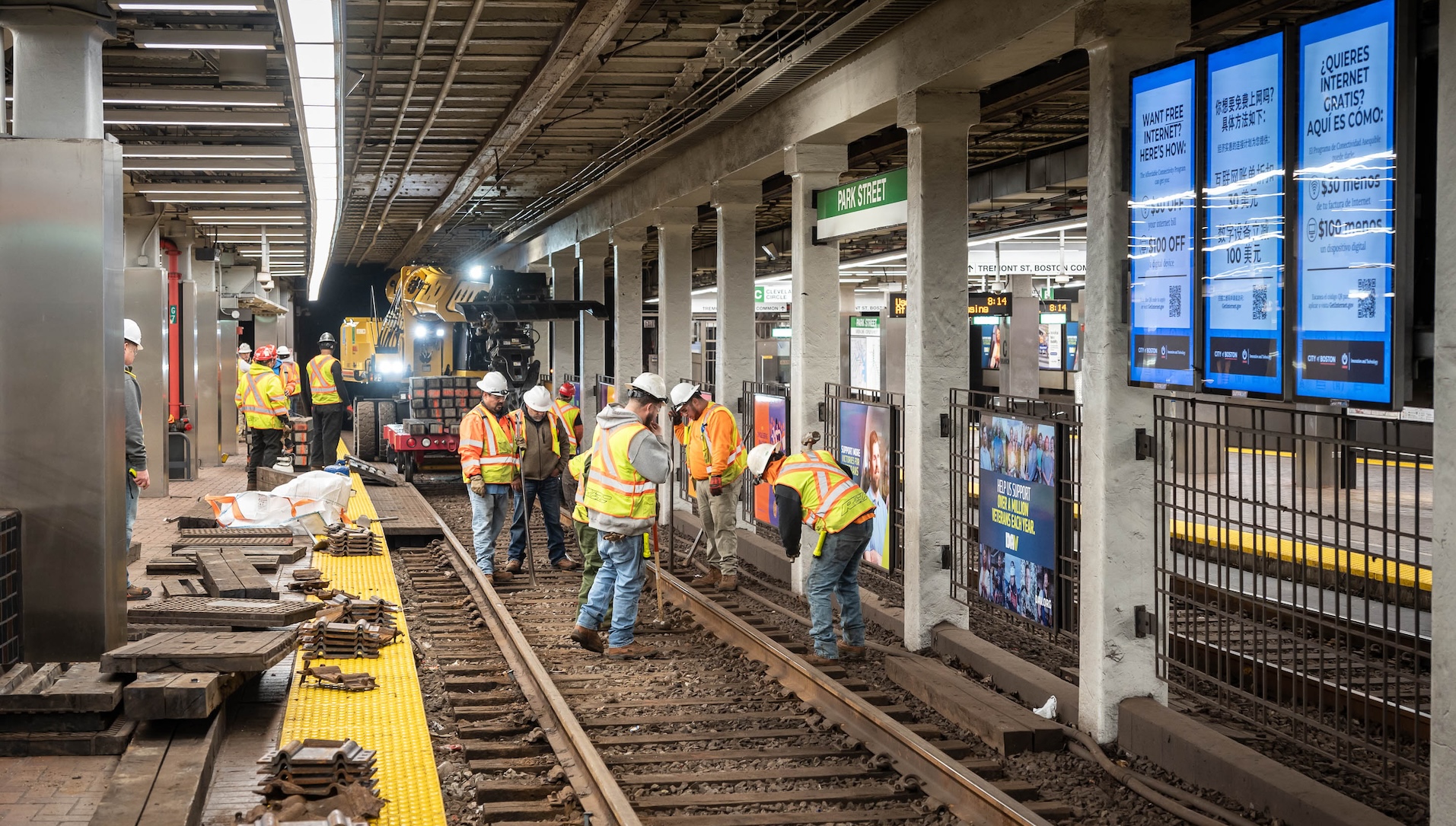Infra
Declining Infrastructure Funding From Healey Admin Puts T’s ‘State of Good Repair’ Further Out of Reach – Streetsblog Massachusetts

On Tuesday, the MBTA Board of Directors ambivalently approved a reduced-size 5-year capital investment budget, with warnings that declining funding will make it increasingly difficult for the agency to catch up on its $25 billion backlog of repair and maintenance needs.
The MBTA’s new $9.6 billion capital investment plan, which covers the five-year period from July 2024 through June 2029, is roughly $100 million smaller than last year’s capital plan, thanks to dwindling financial support from Governor Healey’s treasury.
Ambition vs. available resources
The capital plan approved yesterday leaves many priorities unfunded and in limbo. As in past years, it leaves many of the T’s electrification and service improvement initiatives unfunded.
In an April letter to stakeholders, MBTA General Manager Phil Eng struck an apologetic note about the proposal.
“There are more demands for capital investment than we have the resources to fund,” admitted Eng. “In addition, we anticipate constrained financial resources in the years to come, further exacerbating our challenges in meeting our capital objectives.”
The capital budget is separate from the agency’s annual operating budget, which covers day-to-day expenses like payroll and fuel costs. The capital budget pays for major construction projects, like bridge and tunnel repairs, and equipment procurements, like new transit vehicles.
But the capital budget influences the operating budget in significant ways. Disinvestment in the T’s infrastructure means that the T’s workers spend more time and money repairing obsolete equipment instead of serving riders.
And roughly half of the MBTA’s capital spending gets financed with debt, which must be repaid out of future operating budgets. This year alone, the T will pay over half a billion dollars – nearly a fifth of its operating budget – to pay off bonds it issued for past capital projects.
‘Treading water – barely’
A few months ago, MBTA officials revealed that their agency had a whopping $25 billion backlog of maintenance needs associated with infrastructure that was in need of replacement.
MBTA staff warned that with current levels of funding, that backlog is likely to grow.
“We own 75,000 assets, and each and every one of those, every day, is getting a day older,” the MBTA’s Assistant General Manager for Policy and Strategic Planning Lynsey Heffernan warned board members during Tuesday’s meeting.
Director Thomas McGee, a former state senator, observed that “we’re continuing to get farther and farther behind.”
McGee noted that besides failing to the basic needs of its existing infrastructure, the proposed budget also fails to fund long-promised projects necessary to improve service – including the electrification of the commuter rail system, new bus garages for an expanded, electric fleet, and the red-blue connector.
Instead of modernizing the T, McGee said, “we’re treading water – barely.”
Board member Mary Skelton-Roberts observed that “we continue to put money into the system, but it’s not enough to move the dial on the state of good repair… It’s not going to work just continuing to put so few dollars in, when the needs are so great.”
Under Gov. Healey, investments are declining
McGee also noted that under the Healey administration, the state’s financial support for MBTA capital budget is projected to decline precipitously over the next 5 years.
Governor Baker’s treasury agreed to issue state-backed bonds – that is, debt that the T will not have to pay back out of its own limited budget – to foot the bill for a number of big-ticket capital projects, including the South Coast Rail expansion project and new trains for the Orange and Red lines.
Many of these projects are still in progress, which means that the T will receive another $625 million from state taxpayers to complete those projects over the next 5 years.
But as those projects wrap up, the associated funding from the state will go away.
And since taking office 18 months ago, Governor Healey has not pledged any additional state-backed bond funding to help the T fix its infrastructure in the longer term – much less fulfill the Governor’s campaign promises of expanded, electrified transit service.










